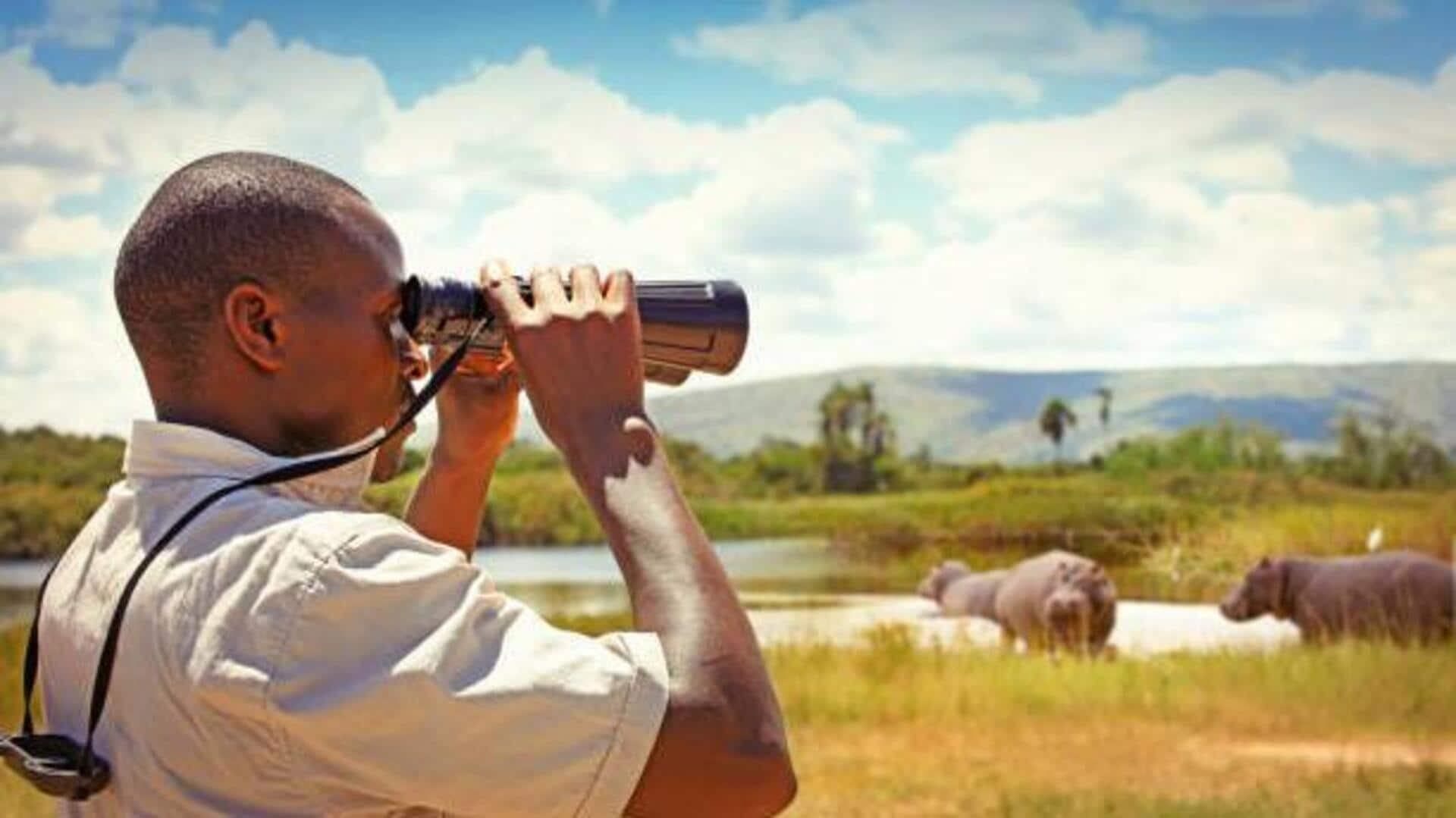
How to become a safari guide
What's the story
For those who are passionate about wildlife and nature, becoming a safari guide in Africa is an exhilarating career choice. The job requires leading tourists through the African wilderness, sharing knowledge about the ecosystem, and ensuring safety. It demands certain skills, training, and a deep understanding of the environment. Here's a step-by-step guide to help you embark on this adventurous journey.
Role requirements
Understand the role requirements
A safari guide should have impeccable communication skills, a lot of patience, and an aptitude for working under pressure. Knowledge of local flora and fauna is a must. Guides should also be physically fit since the work requires long hours outdoors. Understanding of different cultures can also make guest interactions better.
Qualifications
Obtain necessary qualifications
To become a safari guide, you'll also need to take relevant courses that cover wildlife management, first aid, and customer service. Many countries require guides to have specific certifications or licenses. Therefore, be sure to research these requirements for your desired location before starting your training.
Practical experience
Gain practical experience
Gaining hands-on experience is imperative in the field of safari guiding. Volunteering at wildlife reserves or serving as an assistant guide provides practical insight into the nuances of day-to-day operations in the wilderness. Such experiences not only help build confidence but also significantly sharpen one's problem-solving skills. These skills come in handy when you face unexpected situations during safaris, ensuring guest safety and an enriching experience.
Language skills
Develop language skills
Being multilingual greatly helps safari guides, making it easier to communicate with tourists from different countries. Mastery of languages, especially French or German, can prove particularly useful. It paves way to opportunities in areas frequented by European tourists. Not only does this skill improve guest interactions but also enhances the overall experience by making communication smoother. Learning more languages makes guides more competitive in the job market, catering to a wider audience.
Networking
Network with industry professionals
Networking is important for safari guide career growth. Attending workshops and wildlife tourism associations also help in expanding your network. These connections will lead you to job opportunities and mentorships, which are important for professional development. Interacting with industry professionals also enhances your knowledge and skills, paving way for a successful career in guiding.